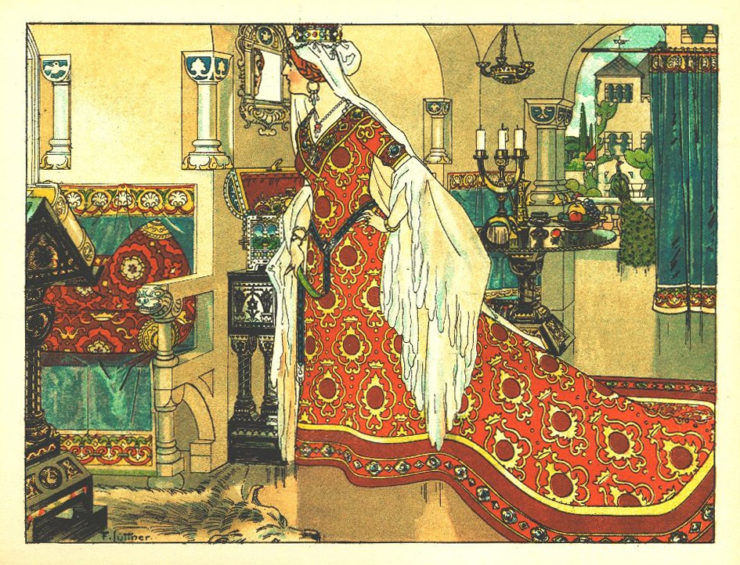Divas are divine. Literally: “Diva” derives from the Latin word for “divine,” or a “goddess,” and it’s no small thing to label a person (or a character) as such. Diving into a book and discovering a diva lurking within brings an immediate rush, because divas are super confident of their place in the universe—and absolutely positive that the sun spins around them, not the other way around.
Not only that, divas have a way of taking the wheel in a story, in part because they operate under a totally different set of rules: namely, their own. As an author who’s recently written a loose cannon—er, divine diva actor—named Fiona Ballantine in my upcoming book Tune In Tomorrow, I promise that these characters sometimes they surprise even their creators.
Yet when we think of divas in literature, fantasy might not be the first genre to come to mind. There’s Scarlett O’Hara in Gone With the Wind, or Miranda Priestly in The Devil Wears Prada, or Rhoda Penmark in The Bad Seed. But divas exist everywhere—from opera (their natural habitat) to reality TV to wrestling. So why not fantasy? And, for that matter, there’s no rule that says divas have to be cisgender women, or even human—divas tend to transcend labels and confound expectations; it’s all part of the gig.
So let’s walk slowly and carefully into the lion’s den, where the divas—some resplendent on their thrones, some brooding in dark caves, filled with malignant motivations—reside, and find ourselves some fabulous fantastical examples. Like, say, the following:
Titania (A Midsummer Night’s Dream, William Shakespeare)
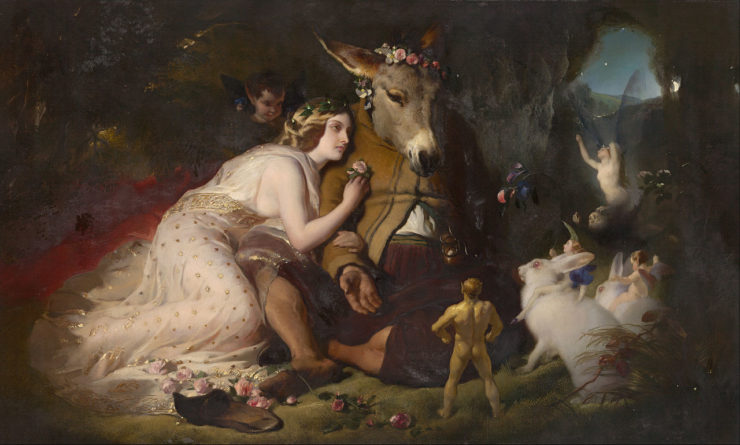
As Queen of the fairies and wife of the Fairy King Oberon, Titania is about as powerful a fantasy character as you can find. But royalty alone isn’t enough to grant her diva status: It’s her strong, willful personality, coupled with her lack of fear when asserting power, that makes her an excellent diva. She’s got underlings in Peaseblossom, Mustardseed, Mote, and Cobweb, who wait on her hand and foot. She also has intense maternal feelings for a changeling Indian boy she’s taken in. (While the kid never does get named in the play, that is somehow totally in keeping with a diva-ish approach to motherhood.)
Unfortunately, it’s her adoptive son who proves the wedge in the story; Oberon is jealous of his wife’s time and attention and wants the boy to serve as his attendant. Not too many individuals could tell the Fairy King no, but in true diva fashion, Titania refuses his demand—irked, he decides to undermine her with a trick. Oberon causes her to fall in love with a human whose head has been transformed into a donkey’s. And while a lot of the play focuses on Titania’s newfound affection for Nick Bottom, it’s really Oberon who’s left looking like an ass, since he had to be underhanded to get his wife to see things his way.
Diva Quotient: 4 Haughty Glances out of 5
Evil Queen (Snow White, the Brothers Grimm)
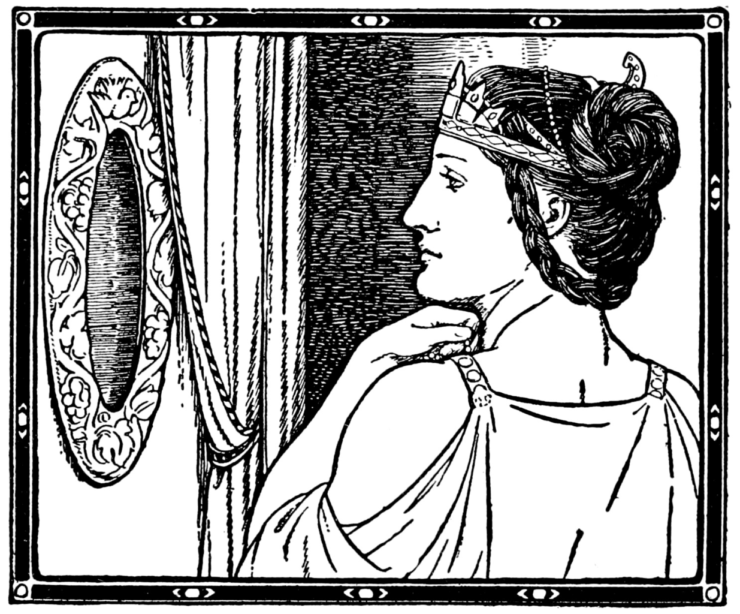
Here’s another instance in which a major character just doesn’t get an official name. It’s hard to imagine that the villainous diva at the center of Grimm’s Snow White was born with the name Evil Queen (the Disney film from 1937 had publicity materials that called her Regina Grimhilde)—but that’s about all we have to go on. As presented, EQ is the classic fairytale baddie, happy to snuff out youth and beauty and innocence with a poison apple, but we’d think of her as a much-maligned diva who was just doing her diva duty by trying to weed out the competition. (Or, in some retellings, possibly protect Snow from more malign forces.)
Regardless of her reasons, clearly there was some logic in them: Snow White is not destined to be a Queen; she hasn’t got the fire in the belly. Faced with the threat of death, she runs away and hides, tidying up after a bunch of miners rather than dreaming up methods of revenge. Sure, she didn’t deserve to die (or go into a long slumber or get kissed by some rando prince who thought she looked cute, which is a whole other issue), but sometimes divas go overboard. This is why it’s best to stay on their good side—if you can find it.
Diva Quotient: 5 Magic Mirrors out of 5
Lord Voldemort (Harry Potter)
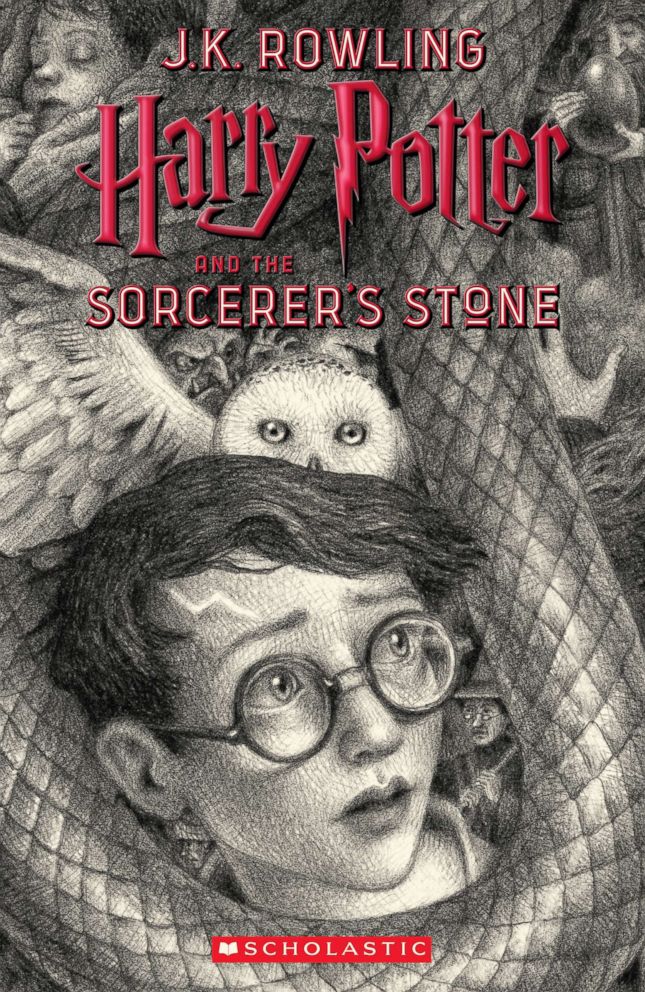
Voldy is a classic diva, even if he doesn’t really dress the part. For one thing, he’s got a name no one’s supposed to even speak, he regularly swoops in in great dramatic fashion to scare the living daylights out of pretty much everyone, he’s got tons of creepy minions willing to do his bidding (and very rarely gets his own hands dirty). And speaking of hands, he’s got the most fantastic manicure! (All right, we might be cribbing a bit from the films now.) There you are, trying to take over the world and vanquish your enemies and you still have time to get your nails buffed and sharpened? Priorities, baby.
That said, the downside of the ol’ Vol is, as we noted, the outfits. Sure, he’s got the plunging neckline but the dark gray, shapeless shift really needs some smartening up. We understand that trying to re-collect your shattered soul parts can be time-consuming and dangerous, but you owe it to yourself to look devastating as you blast your way in and out of Hogwarts while trying to do away with your pesky teenage enemy. Needs improvement, but still a lot of potential here.
Diva Quotient: 3 Avada Kedavras out of 5
Elphaba Thropp (Wicked, by Gregory Maguire)
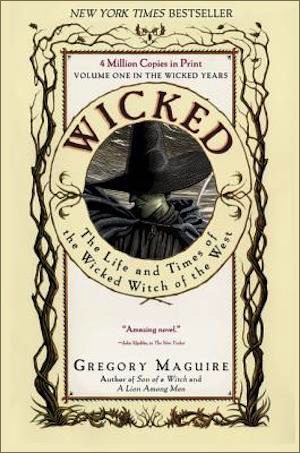
Of course the woman who became known as the Wicked Witch of the West is best known to audiences through Frank L. Baum’s Oz books (and the classic 1939 The Wizard of Oz), but Maguire created a more three-dimensional, considered version of the character in his revisionist take on her life and story. In Wicked, El is the result of her mother’s rape and emerges with green skin, pointed teeth, and an equally sharp personality. She grows up discriminated against and something of an outcast, but she also becomes a champion of animal rights (animals in Maguire’s Oz are sentient and deserving of basic rights). It’s hard not to empathize with someone like that.
Seen from Thropp’s point of view, it’s hard not to see why El might have needed to lash out—the leader of the land has sent a team of assassins to kill her! Not only that, one of the assassins is responsible for the death of her sister. (Plus, spoiler alert: We learn that El’s father, the man who drugged and impregnated her mother, was none other than the Wizard himself.) So yes, the fact that she wants the pair of shiny shoes her sister promised her and isn’t afraid to use her powers (and a fiery broomstick) to get what’s rightfully hers makes her an unforgettable diva—one who’s neither villain nor hero, but a lot like us, as it turns out.
Diva Quotient: 4 Burning Broomsticks out of 5
Cersei Lannister (A Song of Ice and Fire, by G.R.R. Martin)

Daenerys needed dragons. Arya had to train with the Faceless Man and become an expert assassin, deadly with a dagger. Brienne wielded a sword and wore tons of armor. But Cersei’s main weapons were always her looks, her wiles, and her wits. Love her or hater her, let’s all agree now that the true diva in charge in Westeros was, and will always be, Cersei Lannister. Here’s a woman born to power who decides that she’ll do whatever it takes to get what she wants, including sleeping with her twin brother, helping to off her husband King Robert, assuming the Queendom after the deaths of her heirs, and looking incredible in both golden gowns and simple hunting attire.
Cersei was never going to be a shrinking violet in either the Lannister or Baratheon households. As a child she took lessons in fighting while pretending to be her lookalike brother; refused to believe in the prophecies of how her life would turn out, and took no guff from anyone—royal or not. But her true diva-dom came into full flower only after she appeared to have lost everything. Arrested, imprisoned, and tormented by the High Sparrow and his minions, her hair is shaved and she’s forced to walk naked through the streets. That is the crucible by which a true and terrifying divas is created—because Cersei never bent or bowed; she remained unbroken until the very end. She is the Queen.
Diva Quotient: 5 Wildfire Potions out of 5
Dream (The Sandman, by Neil Gaiman)
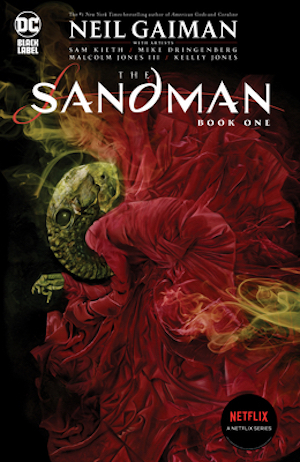
“He’s gotta be the tragic figure standing out in the rain, mournin’ the loss of his beloved. So down comes the rain, right on cue. In the meantime everybody gets dreams full of existential angst and wakes up feeling like hell. And we all get wet.” So notes Mervyn Pumpkinhead about the Endless creation known as Dream. And whether you call him Morpheus, Sandman, or Oneiros, he’s one of the more enigmatic representations of a literary diva we’ve ever seen. Weighed down by his many responsibilities, recovering from a long imprisonment, he’s twitchy and quick to take offense—I mean, didn’t he condemn his mortal lover Nada to Hell for her perceived rejection of him? Harsh! Meanwhile, Dream seems to glory in his own gloom and isolation, while simultaneously being incredibly self-centered.
Meanwhile, the diva-osity of Dream doesn’t end there: He’s a striking, proud figure who struts like a rock star in dark clothing and cape (somehow all divas must have access to a cape) and stars glimmer where his eyes should be. He fits in stylishly wherever he goes, altering his appearance to local custom and culture. And once he’s freed from 70 years of imprisonment, what’s one of the first things he does? All right, first he takes revenge on his captors—but then he runs home to go fix up the ol’ kingdom, which has fallen into disrepair. Because like all divas, Dream knows it’s as much about what you do as how things look. And they should always look…well, dreamy.
Diva Quotient: 3 Nightmares out of 5
Buy the Book
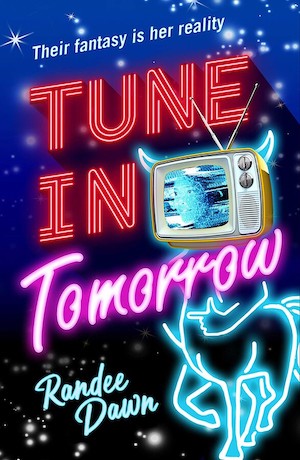

Tune in Tomorrow
Randee Dawn is a Brooklyn-based entertainment journalist who scribbles about the glam world of entertainment by day, then spends her nights crafting wild worlds of fiction. Her debut novel, Tune in Tomorrow, about a fantastical TV reality show packed with soap opera-style twists, will publish on August 23 (Solaris). Dawn has written for Variety , The Los Angeles Times, Emmy Magazine and Today.com and is the co-author of The Law & Order: Unofficial Companion. Find out more on Twitter, and RandeeDawn.com










